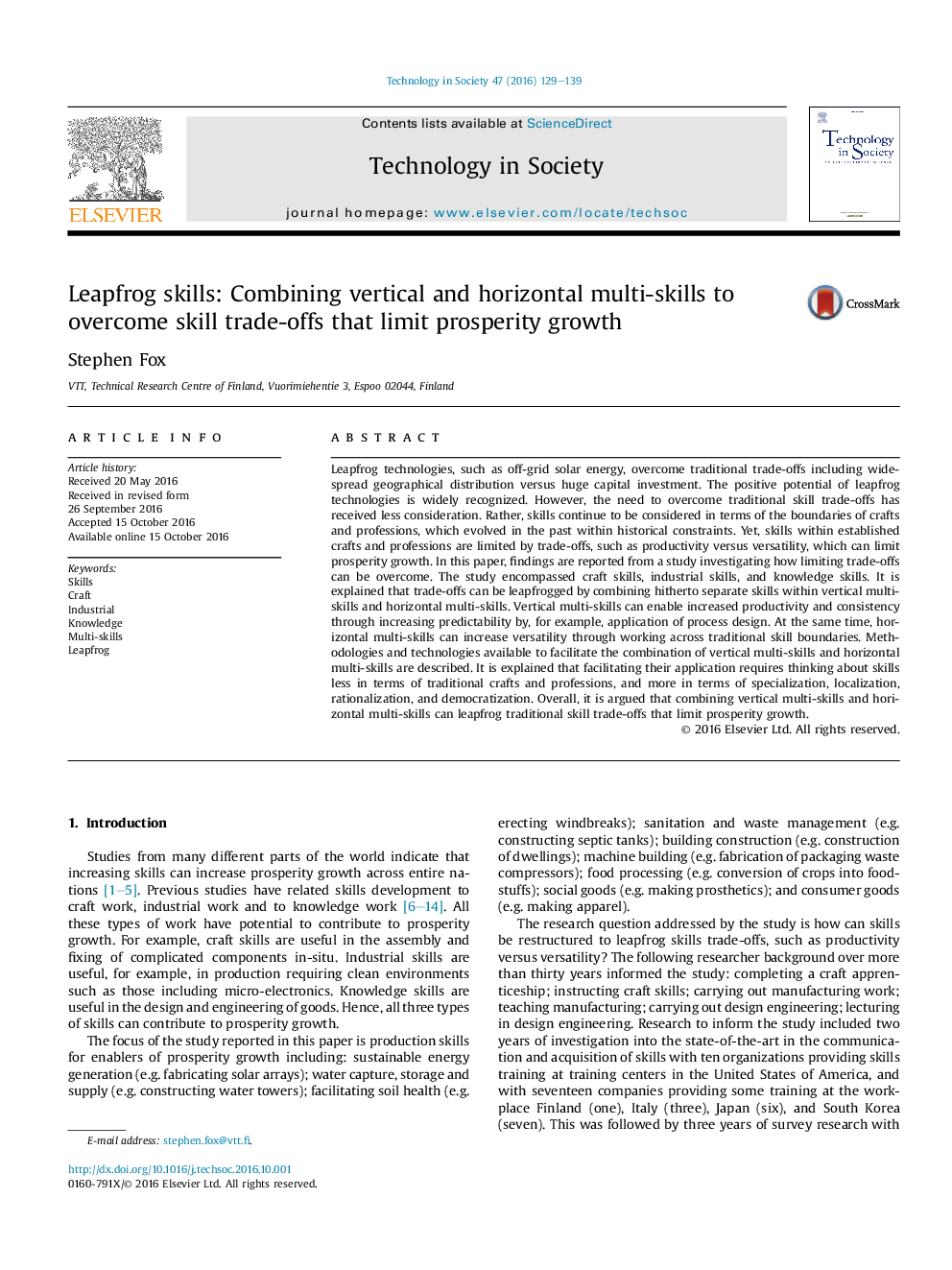| Article ID | Journal | Published Year | Pages | File Type |
|---|---|---|---|---|
| 6851531 | Technology in Society | 2016 | 11 Pages |
Abstract
Leapfrog technologies, such as off-grid solar energy, overcome traditional trade-offs including widespread geographical distribution versus huge capital investment. The positive potential of leapfrog technologies is widely recognized. However, the need to overcome traditional skill trade-offs has received less consideration. Rather, skills continue to be considered in terms of the boundaries of crafts and professions, which evolved in the past within historical constraints. Yet, skills within established crafts and professions are limited by trade-offs, such as productivity versus versatility, which can limit prosperity growth. In this paper, findings are reported from a study investigating how limiting trade-offs can be overcome. The study encompassed craft skills, industrial skills, and knowledge skills. It is explained that trade-offs can be leapfrogged by combining hitherto separate skills within vertical multi-skills and horizontal multi-skills. Vertical multi-skills can enable increased productivity and consistency through increasing predictability by, for example, application of process design. At the same time, horizontal multi-skills can increase versatility through working across traditional skill boundaries. Methodologies and technologies available to facilitate the combination of vertical multi-skills and horizontal multi-skills are described. It is explained that facilitating their application requires thinking about skills less in terms of traditional crafts and professions, and more in terms of specialization, localization, rationalization, and democratization. Overall, it is argued that combining vertical multi-skills and horizontal multi-skills can leapfrog traditional skill trade-offs that limit prosperity growth.
Related Topics
Social Sciences and Humanities
Business, Management and Accounting
Business and International Management
Authors
Stephen Fox,
